On January 30, 2020, the name “Boalt Hall” was removed from the Berkeley Law building. The denaming — the outcome of a nearly three-year process — marked the first time a Berkeley facility’s name had been eliminated due to its namesake’s character or actions.
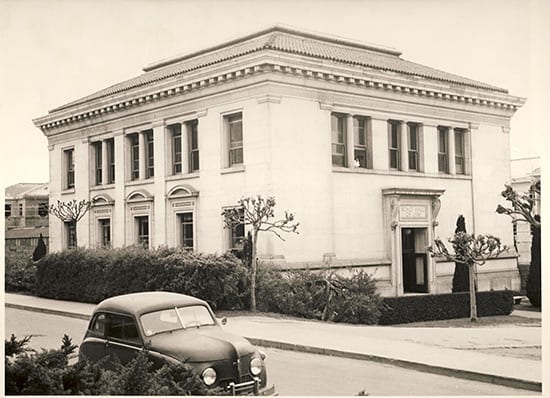
Boalt Hall
John Henry Boalt, who lived in the East Bay with his wife, Elizabeth Josselyn Boalt, didn’t attend or teach at the law school, nor did he contribute to the University of California’s life or mission.
But after Boalt died in 1901, his widow put property she owned into a $100,000 trust for the university to construct, in his memory, Boalt Memorial Hall of Law. The 1906 San Francisco earthquake destroyed most of that real estate, and with building costs escalating after the disaster, the UC Regents allocated $150,000 toward construction of the building. Out of respect for Elizabeth Boalt’s contribution, the Regents put her husband’s name on the new John Galen Howard-designed building. In 1911, Boalt Memorial Hall of Law — today’s Durant Hall — became home to the fledgling UC School of Jurisprudence.
When the law school moved into a new, larger facility in 1951, the Regents changed the name to UC Berkeley School of Law; the name Boalt Hall was given to the main classroom wing. But for decades, many at Berkeley incorrectly referred to the entire building complex, and often to the law school itself, as Boalt Hall. And graduates of the school often were called “Boalties.”
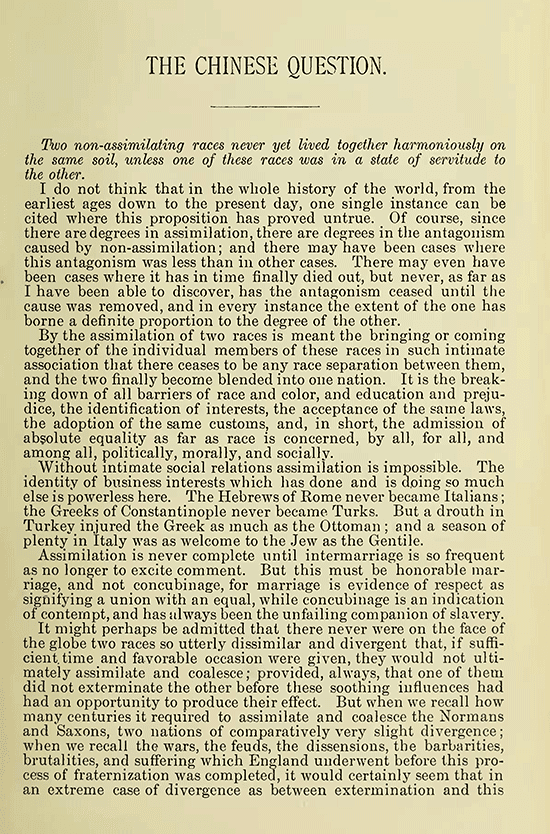
Brought to Light
“In 2017, it came to light that Boalt Hall’s namesake — John Henry Boalt — was a leading figure in the movement to ban those of Chinese ancestry from the United States in the 19th and early 20th centuries. Boalt made profoundly offensive and racist statements about Chinese and Chinese Americans, suggesting that it would be better to ‘exterminate’ those of Chinese descent than to have them assimilate.”
LEARN MORE
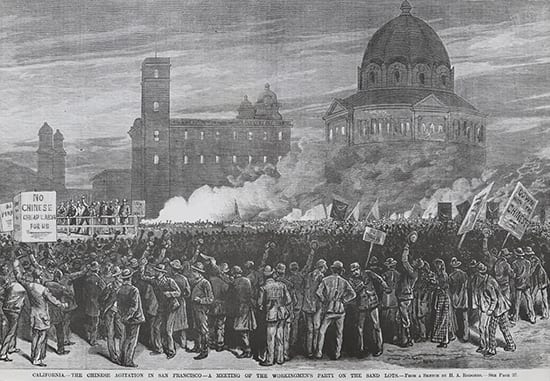
Violent Context
“Just one month before he delivered The Chinese Question, the Chinese community in San Francisco fell victim to a three-day murderous pogrom that captured headlines around the world,” noted attorney and Berkeley Law lecturer Charles Reichmann, who discovered Boalt’s writings at Bancroft Library while researching the Asian experience in California. “And this was hardly the first act of anti-Chinese violence in California’s history. The largest lynching in American history took place in Los Angeles in 1871, its twenty victims Chinese. Lynchings, mass expulsions, and the torching of Chinese communities continued for the rest of the 19th century in California and beyond.”
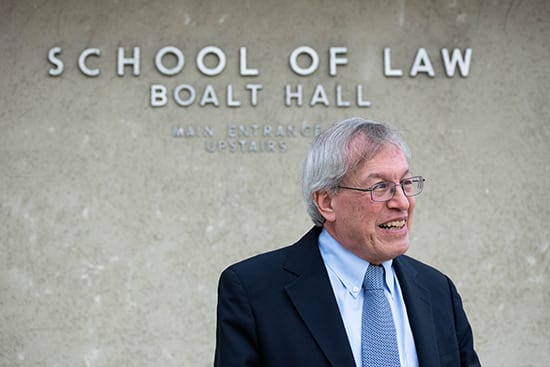
Due Process
“Those views are obviously abhorrent and antithetical to who we are as a law school,” stated Berkeley Law Dean Erwin Chemerinsky. He established the Committee on the Use of the Boalt Name — comprised of an administrator (Senior Assistant Dean and Chief Administrative Officer Charles Cannon), an alumna (Quyen Ta ’03), a faculty member (Professor Leti Volpp), a staff member (Director of Operations for Building Services gar Russell), and a student (Cheyenne Overall ’19) — to study the issue and make recommendations.
The Hearing
In addition to undertaking an in-depth study of the issue, the Committee solicited input from the community (receiving more than 2,000 communications in response) and held an in-person Town Hall Hearing on the Use of the Boalt Name moderated by Ta on February 1, 2018. Panelists Alex Lee ’04, Alex Krem ’71, and Don Tamaki ’76 presented candid arguments in favor of denaming, keeping the name, and renaming (after Elizabeth Boalt), followed by extensive community comments. Some disagreed with changing the name, pointing to how ‘Boalt’ had been used for generations, with great affection, to describe the law school.
Confronting Racism
Students in Berkeley Law’s Asian Pacific American Law Students Association read out loud from The Chinese Question and express their personal reactions in “The Meaning of ‘Boalt’”, a powerful video presented at the Town Hall Hearing.
Findings
After studying the issue for more than a year, the Committee presented its findings to Dean Chemerinsky in “Recommendations on Future Use of the Boalt Name.” In proposing the denaming, the Committee noted that Boalt’s main historical legacy was one of fueling Chinese exclusion policies of the late 19th century, that even “examining John Boalt’s views even within the context of his own era” revealed jarring levels of racism and bigotry, and that he made no meaningful contribution to the law or to the university. Dean Chemerinsky accepted the recommendations.
KEY FACTORS
- John Boalt’s principal legacy is one of racism and bigotry, which was significantly contested at the time and place in which he lived
- No gift required that the building be named Boalt Hall

A Change
In November 2018, Dean Chemerinsky submitted a request to UC Berkeley’s Building Name Review Committee to remove the name of one of the law school’s principal buildings, Boalt Hall, and to create a historical contextual display. That committee, which reports to the chancellor, evaluated a formal proposal from Dean Chemerinsky and collected additional campus feedback. In October 2019, its members voted unanimously to recommend the name’s removal from the building. Their decision required and received approval from Christ and UC President Janet Napolitano. On January 30, 2020, the lettering “Boalt Hall” was removed from the side of Berkeley Law’s building.
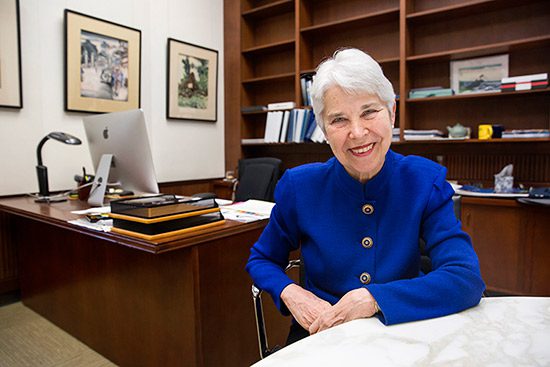
Powerful Symbol
The Committee’s principles call for the legacy of a campus building’s namesake to align with UC Berkeley’s mission of fostering diversity and equal opportunity on campus. “It’s incredibly important to confront racist symbols, like John Boalt’s name on a building, because these symbols act to reinforce the history of white supremacy in our institutions … like there is an endorsement of that racism by the institution itself,” said Berkeley professor and Committee Co-Chair Paul Fine. Writing to the campus community, Chancellor Christ said: “There is no question that building names are powerful symbols for those who walk across our campus.”
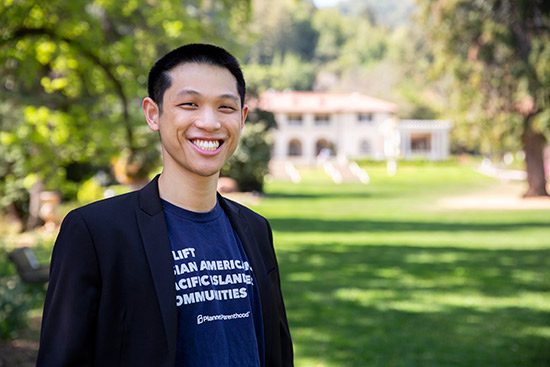
Racial Justice Matters
The detailed, thorough process leading to the denaming and the result it yielded powerfully reflect Berkeley Law’s values. Alex Mabanta, a Ph.D. student in the school’s Jurisprudence and Social Policy Program and the graduate student representative on the Building Name Review Committee, said removing the Boalt Hall name “says to Asian American and Pacific Islander law students, unequivocally: ‘You matter.’ The process of denaming Boalt Hall says to students of color, unmistakably: ‘You matter. Racial justice matters. We want you to belong to Berkeley Law.’”
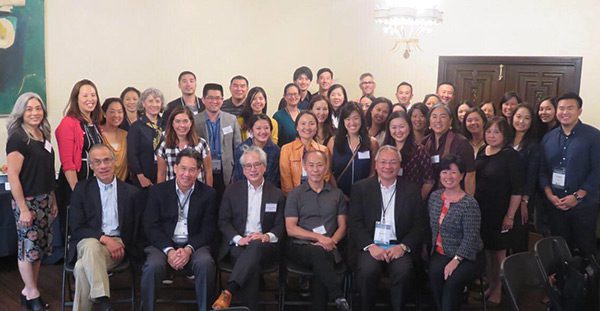
A ‘Visible Public Record’
In fall 2018, Dean Chemerinsky convened the Visual Display Committee to oversee several initiatives involving visuals and graphics at Berkeley Law. For the denaming, the 13-member committee recommended creating and presenting “a visible public record … that will enable viewers to acknowledge this history.” The chancellor’s Building Name Review Committee said such a display should reflect a commitment to restorative justice, offer communal and cultural healing, and assert the centrality of Berkeley values. Said Dean Chemerinsky: “This cannot be about erasing a difficult history or forgetting all of the years that the name Boalt was used and why it was changed.”

As a Community
“The Boalt Hall denaming project is a statement about what we can do as a community,” said Ta, part of the five-member Committee on the Use of the Boalt Name and a leader of the Berkeley Law Asian American Alumni Group.
That group launched in 2017, with John Kuo ’88 as the catalyst. Membership quickly grew, as did a sense of urgency about the denaming issue. A former Berkeley Law Alumni Association president, Kuo called Chemerinsky after Reichmann’s research findings about John Boalt were revealed, and discussed forming a committee to study them.
Meanwhile, led by Kuo, Ta, and other prominent attorneys including Tamaki and Dale Minami ’71, the Berkeley Law Asian American Alumni Group engaged with all sectors of the school community to share their perspective and discuss how best to proceed. “It was such a collaborative process involving so many individuals,” Ta said.
As Christ noted, “Removing the name of a building is a consequential decision that requires careful study and consideration of different viewpoints from across our community. For more than two years, the campus engaged in this kind of fair, open, and meaningful deliberation.”
The community’s call to learn from Boalt’s legacy and the denaming process — rather than whitewash them — was resounding. Learning from the past, school leaders continually heard, would provide the best path for moving forward.
Said Kuo: “The educational value of this name change is just as important as, if not more important than, the significance of the name change.”